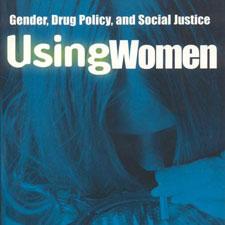"Using Women" Redux: Reflecting on Feminist Ethnography of Women on Drugs


What has changed for those who are considering gender, drugs, and drug policy since Using Women: Gender, Drug Policy and Social Justice was published 15 years ago?
Two decades ago when I began the project that grew up to be Using Women, I concluded that the perils of feminist drug ethnography outweighed its promise. Fearing that drug ethnographies enabled the ‘ethnographic state’ to reach further into drug-using women’s lives and exacerbate their vulnerability to the state, I was haunted by the unbearable weight of the historical repertoire of representations. At best, feminist ethnographers produce realist accounts that can engender the effects of empathy, authenticity, reduced social distance, and, at best, contribute to the de-stigmatization of illicit drug use. Yet the War on Drugs has intensified its effects on women, differentially and at times spectacularly targeting pregnant and parenting women. How are we to make sense of gender and the War on Drugs? Recent feminist ethnographies of the gendered effects of the War on Drugs tell another story, pointing both to the obduracy of the repository of cultural tropes to which I pointed in Using Women, and the diversification of them through newly emergent modes of life and representation.
Nancy D. Campbell is Professor of Science and Technology Studies and Associate Dean of Graduate Studies and Research in the School of Humanities, Arts, and Social Sciences at Rensselaer Polytechnic Institute in Troy, New York. In 2014, she was a Fellow at the University of Freiburg Institute for Advanced Studies (FRIAS), working on her current research on overdose prevention as a social movement that links harm reduction, healthcare, and human rights.
